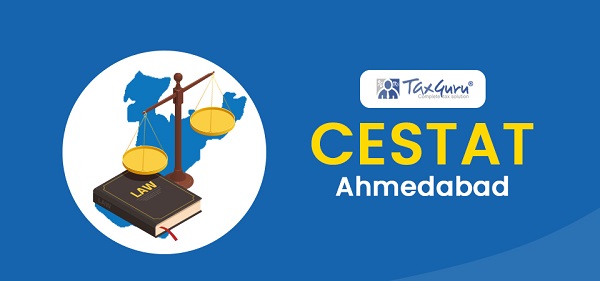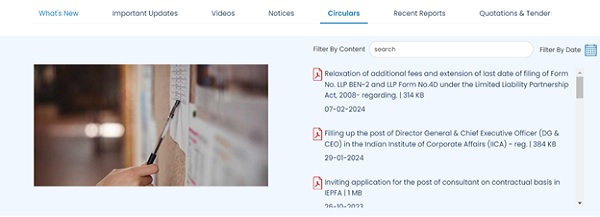1. Recently (mainly December 2020) spate of show-cause notices (SCN) have been issued seeking to demand the service tax on the differential amounts as determined based on the values reported in the service tax returns (nil if not filed) and the values reported in Form 26AS filed under the Income Tax Act reflecting the TDS deductions. Given notices seeks to demand the tax by (a) invoking the extended period of limitation as it seeks to demand the tax for FY 2015-16 (b) invoking the provisions of best judgement assessment and (c) presuming that the difference between the values shown in the service tax returns and Form 26AS is towards the provision of taxable services. In the present article, we examine the legality of the basis on which the notices have been issued. This is for the reason that the given notices will stand vitiated (void) if the basis on which it has been issued is found to be contrary to law.
Extended period of limitation
2. Sec. 73(1) of the Finance Act, 1994 permits the invocation of the extended period of limitation whereby the SCN seeking the demand of tax up to 5 years (which will include the demands for FY 2015-16) can be issued if the said tax has not been paid on account of “fraud or collusion or wilful misstatement; or suppression of facts; or contravention of any of the provisions with intent to evade payment of service tax”.
3. If an extended period of limitation cannot be invoked, then the normal period of limitation shall be thirty months and hence the SCN seeking to demand the tax for FY 2015-16 issued in December 2020 will be considered to have been issued beyond the normal period of limitation and hence the same shall not be valid.
4. Recap of the above mentioned legal provisions thus brings us to a point wherein we need to determine whether the situation in which the referred SCN has been issued can be said to fulfil the ingredients enabling the invocation of the extended period or not?
5. It can be contended that the figures reflected in Form 26AS are already available with the department from the concerned year itself as the same is based on the filings done under Income Tax Act by the deductor. Therefore the said information has never been suppressed by the concerned taxpayer from the department. Further, it can also be contended that the taxpayer has also not indulged in any fraud or collusion or wilful misstatement as the given figures reported in Form 26AS basis which SCN has been issued have been submitted by the counterparties and not the taxpayer and the said information is available for department’s perusal right from the year in question. Also, it may not be correct to say that the taxpayer has evaded the tax sought to be recovered for the reason that the basis for such recovery is on the figures of Form 26AS already available for verification by the department within the normal period of limitation. Hence it can be said that in such facts and circumstances, the invocation of the extended period may not be in accordance with the law and hence the SCN in question is required to be vacated.
6. In support of the above contentions, one may also refer to the unreported decision of Hon’ble CESTAT in the case of Pappu Crane Service v. Commissioner (Service Tax Appeal No.70707 of 2018-[DB]) wherein the Tribunal while allowing the appeal has rejected the invocation of the extended period when the revenue’s case was solely based on the figures in Form 26AS.
Best judgement assessment
7. The SCN also seeks to base itself on the provisions contained u/s 72 of the Finance Act, 1994 with respect to the best judgement assessment. Perusal of the said provisions will reveal that it only provides for the determination of the value of taxable services in question and not for the determination of the nature of service involved as well as the aspects of limitation. Said view stands supported by the decision in the case of Shubham Electricals v. CCE 2015 (40) S.T.R. 1034 (Tri. – Del.) affirmed by Hon’ble Delhi High Court (2016 (45) S.T.R. J314 (Del.)]. One may also refer to the decision in the case of Deltax Enterprises v. CCE 2018 (10) G.S.T.L. 392 (Tri. – Del.) wherein Tribunal has taken a view that application of Section 72 (best judgment assessment) cannot be extended based solely on the income tax return without identifying the specific taxable service.
8. Further, there are a plethora of cases (see 2016 (45) S.T.R. 33 (Del.)) wherein the Courts have taken the view that the quantification of liability basis the invocation of the provisions of best judgement assessment must be based on cogent material. It is not an ex-parte assessment as ordinarily understood under the Income Tax Act, 1961. It is an undisputed fact that the levy of service tax cannot be based solely on the amounts on which the TDS has been deducted and reflected in Form 26AS. This is for the reasons that the provisions determining the nature of the transaction (service or not), nature of service involved, the applicable rate of tax, the value of services and the person who is required to pay the tax (forward or reverse charge) are different from the provisions under Income Tax Act providing for deduction of TDS. Hence it can be said that the crude method adopted of taking the differential amount by invoking the provisions of best judgement assessment may not be in accordance with law.
9. It may also be considered that provisions of best judgement assessment even for the valuation of service are attracted only if the concerned person (a) fails to furnish the return or (b) if the return has been filed in that case, he fails to assess the tax in accordance with law. Therefore one needs to consider factually whether the given ingredients are satisfied or not to permit the invocation of Sec. 73. One may rely on the decision in the case of Creative Travel Pvt. Ltd. v. CCE 2016 (41) S.T.R. 134 (Tri. – Del.) as affirmed by Hon’ble Delhi High Court 2016 (45) S.T.R. 33 (Del.) wherein it has been held that seeking vague documents and non-submission of same cannot lead to invocation of provisions u/s 73 under situation (b) referred above.
Presumption of the provision of taxable service
10. The SCN also presumes that the differential amount is towards the provision of taxable services but does not identify the relevant taxable services in question. The SCN seeks to justify the said position on the premise that the requisite information which was called for has not been made available by the taxpayer and hence the said presumption is valid. We submit that the said approach may not be in accordance with law. Hon’ble Tribunal in the case of Shubham Electricals (supra) was faced with a similar issue wherein the department justified the issuance of SCN based on the presumption that in absence of availability of data from the taxpayer, the differential figure needs to be subjected to tax. The Hon’ble CESTAT allowing the appeal of the taxpayer held that the officers have powers under the Act to visit the premises and examine the facts for issuing the SCN. It was further held that “the failure to gather relevant facts for issuing a proper show cause notice cannot provide justification for a vague and incoherent show cause notice which has resulted in a serious transgression of the due process of law”.
11. One may also refer to the decision in the case of Kush Constructions v. CGST NACIN 2019 (24) G.S.T.L. 606 (Tri. – All.) wherein also Hon’ble CESTAT held that “Revenue cannot raise the demand on the basis of such difference without examining the reasons for the said difference and without establishing that the entire amount received by the appellant as reflected in said returns in the Form 26AS being consideration for services provided and without examining whether the difference was because of any exemption or abatement, since it is not legal to presume that the entire differential amount was on account of consideration for providing services.” Therefore it can be contended that the SCN issued without categorically identifying the nature of taxable service involved may not be valid on the aforesaid grounds.
Conclusion
12. Apart from the merits of the concerned case, readers will agree that the issuance of SCN merely based on the comparison of figures with 26AS may not stand the test of judicial scrutiny on several technical aspects discussed hereinabove. Therefore it is suggested that the said aspects be duly considered and kept in mind while filing the defence reply.
(Views are strictly personal)






















I got such SCN for FN 2014-2017 based on my IT data. Today I appeared for PH with AC. My income in form2 6AS is zero because it’s export of service (consultancy service) However, the AC said I have to prove that it’s not a intermediary service. The superintendent said nobody is ready take risk due to fear of department enquiry and CAG audit.
I’ll make a supplementary submission based on this article. If the adjudication is not in my favor I’ll file a writ in high court. The Officers are under pressure from higher authority to pass adjudication in favor of department. So, only independent court can rescue us.
Can you please share a copy of the Cestat judgment in the case of Pappu Crane Service
Plenty of notices are sent to Advocates whose 26AS statement showed incomes from profession.But during relevant periods the Advocate as service provider was not liable to pay service tax on forward charge basis but it was reverse charge basis. Without examining this issue notices are issued .This is not sustainable. Even first show cause notice is givem, the advocates have replied as above still the officer says explantion is not satisfactory and final notice for adjudication with tax working is given. It speaks volumes of arrogance by burocracy.
Service Tax Short payment notice for FY 2015-16 is issued and officer is claiming for reverse charge service tax on transportation and labour Contractor. Is it ethical as it will not able to claim input credit as on 2021.
Kindly guide……..
Your comments are absolutely on target. The said SCNs show the incompetence on part of the GST Department. The officials issuing such notices should be made to pay penalty and fine to the tax payer to whom they issue such non-sense notices.
Will All The Interest Income From All Sources
From Nationalised , Private Banks , Companies ,
N B FC s Be Entered I Form 26 – AS ,
Irrespective Of The Fact Whether There
Is Any T D S Or T D S Not To Be Recovered ;
Regarding For The Senior Citizens Of 75 Years & Above , The Latest Bidget Proposed That
They Need Not File I T R If They Have Income
Only From Pension & Interest From Bank ;
Bt If One Has More Than One Bank Account ,
They Should File Their Income Tax ; There Will HARDLY ANY PERSON WHO WILL HAVE
ONLY ONE BANK ACCOUNT ; These Are
Persons CLEARLY BEFOOLED BY F. M.
No BRAIN ;